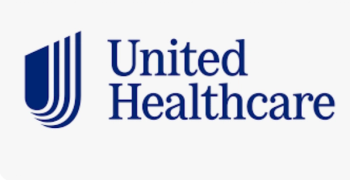
Room for Growth in Precision Medicine Programs
Cost, reimbursement, and lack of expertise are primary challenges.
Definitive Healthcare, a Framingham, Massachusetts-based provider of data, intelligence, and analytics on the healthcare provider market, has released results from its annual Precision Medicine Study. The company polled healthcare leaders at U.S.-based acute care organizations from September to October 2019, in order to uncover the strategic approaches to care, greatest challenges for existing precision medicine programs, and barriers for entry into the space.
A blinded voice-of-customer (VOC) survey-based study targeted U.S. healthcare leaders who have a decision or influence on either establishing or operating a precision medicine program at their organizations.
“There is limited implementation of precision medicine programs across the United States, as roughly one-fifth of acute healthcare organizations have a program in place. Although organizations are primarily focusing their precision medicine programs on oncology, we have seen an increase in the expansion of disease state focus areas since the study was first conducted in 2016,” says Matt Valley, senior healthcare analyst, Definitive Healthcare, and the study’s creator. “Results for 2019 show that close to half of the responding organizations (40%) cover multiple disease states with their precision medicine programs. We have also found that smaller organizations have begun to establish precision medicine programs more frequently than in previous years.”
Related:
Valley says he was a little surprised that more organizations were not directing their attention toward planning for a precision medicine program. “There are a number of hurdles in play, beyond just understanding where to start. Cost will always be a factor; concerns with reimbursement are real; and having both the necessary infrastructure and clinical support teams are a must in order to be successful.”
Study findings show:
• Room for growth: Although there is limited establishment of precision medicine programs (20.5%), and minimal growth over the next few years (13.4%), the number of disease state focus areas have already increased in just a few years’ time. Additionally, smaller organizations have started to enter the space, a key indicator of future growth.
• Oncology as primary focus: Oncology is, by a landslide, the disease state that receives the most attention (66%). However, cardiology (38.1%), prenatal screenings (25.2%), and neurology (19.7%) also appear as top areas of focus in precision medicine programs.
• Cost as biggest challenge: At 28%, the most common challenge of already-established precision medicine programs is cost, given the high expense associated with genomic sequencing, and potential for spending to be driven higher because of companion testing. A close second: the difficulty in obtaining (and understanding) coverage from payers (20%), who are more apt to push back on expensive cost treatments.
• Lack of expertise as primary barrier: Organizations without a precision medicine program most often cited “a lack of expertise” as the primary barrier toward entering the space (33.3%). Given the complexity of the clinical methods, the structuring of the data, the disease knowledge, and the support staff necessary to get a program functioning, many organizations may require guidance around best practices in taking the first step.
The data offer executives insight into where organizations are focusing their precision medicine efforts, and what disease states might be next in line for expansion of existing programs, Valley says. “There is a real opportunity for executives and leaders with existing precision medicine programs to help guide other organizations through the process. Those without programs cited that lack of expertise was their primary barrier to entering the space, and that is unfortunate in knowing that the primary strategic driver for those with programs, or plans to establish programs was to increase their ability to conduct early disease diagnosis.
“Technology, analytics, pharmaceuticals, imaging, genomics, and the research and development industry…are just some of the many verticals that could see immense growth from their contributions to precision medicine,” says Jason Krantz, Definitive Healthcare CEO. “As technology advances, which may in turn help cut treatment costs, the precision medicine market will likely see immense development in the coming years. With this growth, there is real opportunity for executives and leaders within existing precision medicine programs to help guide other organizations through the process.”
“There are many organizations that may need guidance around best practices in taking the first step,” Valley says. “I hope that the research can influence some discussion around that, and maybe get some people to raise their hand and say, ‘We need some guidance’ or extend their hand and say, ‘We can help you get there.’"
Newsletter
Get the latest industry news, event updates, and more from Managed healthcare Executive.

























